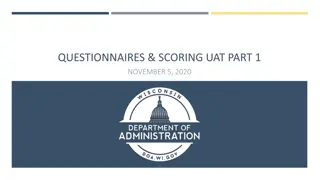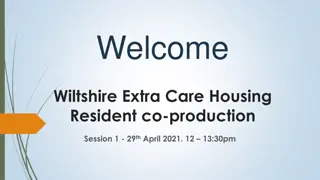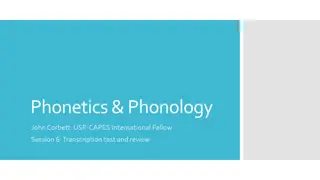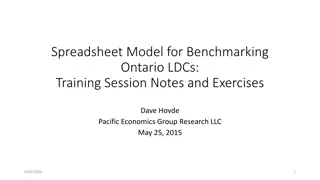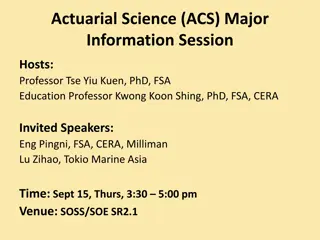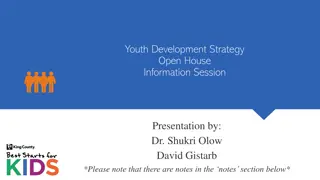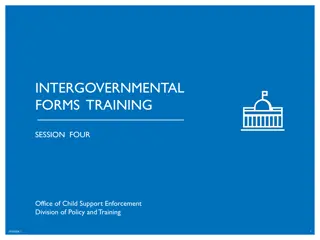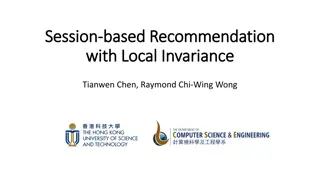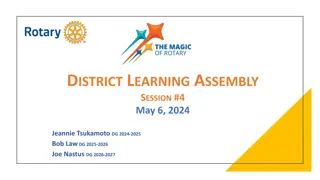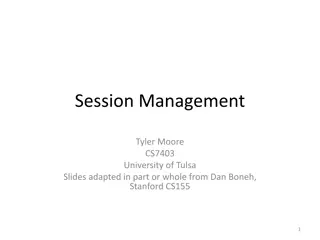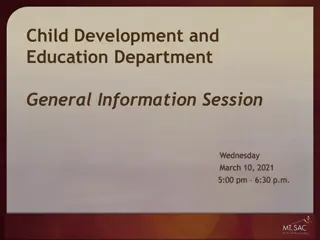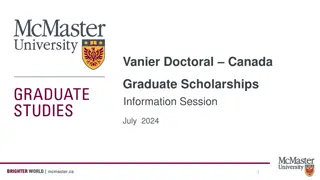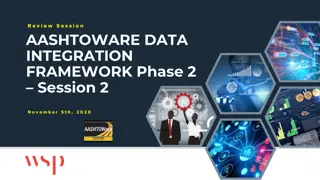
Public Administration: Key Differences and Similarities Explored
Dive into the nuances of public administration versus business administration, as well as the dynamics of politics-administration relationships. Explore how these aspects have been addressed in academic literature to gain a comprehensive understanding of the field.
Download Presentation

Please find below an Image/Link to download the presentation.
The content on the website is provided AS IS for your information and personal use only. It may not be sold, licensed, or shared on other websites without obtaining consent from the author. If you encounter any issues during the download, it is possible that the publisher has removed the file from their server.
You are allowed to download the files provided on this website for personal or commercial use, subject to the condition that they are used lawfully. All files are the property of their respective owners.
The content on the website is provided AS IS for your information and personal use only. It may not be sold, licensed, or shared on other websites without obtaining consent from the author.
E N D
Presentation Transcript
POLI 213 INTRODUCTION TO PUBLIC ADMINISTRATION Lecturer: Dr. Emmanuel Debrah, Contact Information: edebrah@ug.edu.gh College of Education School of Continuing and Distance Education 2014/2015 2016/2017
Understanding Public Administration (part 2) Session 2 College of Education School of Continuing and Distance Education 2014/2015 2016/2017
Session Overview Although public administration has its own distinctive features which delineate it from other disciplines, some scholars have argued that it is similar to private or business administration. Some have further argued that one can separate administration from politics. These debates have ranged on for a long time. In this session, we endeavour to learn about these controversies and how they have been resolved in the literature. Slide 3
Session outline The key topics for this session are the following: Topic one: Public and business administration differences Topic two: Similarities between public and business administration Topic three: Politics-administration dichotomy Topic four: Politics-administration convergence Slide 4
Public and business administration differences Topic one College of Education School of Continuing and Distance Education 2014/2015 2016/2017
Public Interest and Political Direction Argument they differ in terms of their objectives. The principal goal for establishing private organizations is to maximize profit. the desire for profit in the private sector often forces the administrator to watch costs, control workers and fire those who do not perform. the success of the organization is always measured in terms of profit. A loss represents failure. On the contrary, profit is not the primary motive in the public sector. The public sector is managed to provide essential goods and services to the citizenry. Slide 6
Public Interest and Political Direction Argument The public administrator is concerned with how to serve the public interest without counting the cost. Also, there is political control of public administrators. By contrast, business administration is not so much affected by political forces. The administrators are removed from the everyday political pressures exerted on administrators in the public organizations by ministers. Slide 7
Legal Framework and Rigidity Argument The environment of public administration is regulated by law. The administrator rigidly follows laid down rules/guidelines in executing government s activities. On the other hand, private administrators do not lend themselves to legalities they have flexibility in taking prompt decisions if the action is intended to achieve profit for the organization. Slide 8
Transparency and Accountability Argument Public administrators are required by law to submit themselves to the public s scrutiny. Thus, they operate in a glass or goldfish bowl They must offer explanation for all actions they undertake. On the other hand, business administrators are not controlled and scrutinized by agents of the state except where their actions contravene the general laws of the land. Slide 9
Tenure and Efficiency Argument In public administration, employees generally enjoy considerable amount of security of tenure. Their positions in government organizations are certain, and are not subjected to arbitrary dismissals. On the contrary, private administration is characterized by fluidity of tenure of job. Hiring and firing is a common phenomenon in private administration. Slide 10
Tenure and Efficiency Argument Also there is efficiency in private administration than public administration. Public administration is more concerned with acting to satisfy the public interest without counting the losses. On the other hand, private administration is usually run on efficient and result-oriented lines. Slide 11
Similarities between public and private administration Topic two College of Education School of Continuing and Distance Education 2014/2015 2016/2017
The Administrative Science Perspective It is argued that administrators in both public and business administration engage in (POSDCORB) planning, organizing, staffing, directing, coordinating, reporting and budgeting. Slide 13
The Normative Argument Public and business administration mobilize human and material resources to achieve their goals. The two emphasize cooperative interactions among human beings as the basis for achieving optimal results or efficiency. they all strife to provide essential services to the clients /people. They are organized based on Weber s hierarchical structure in which superiors occupy the top positions and subordinates take the bottom positions. Slide 14
Economic and Private Partnership Argument Other scholars think that public and business administration are the same because they all operate on business principles. Most public corporations such as water and energy providers operate as business or commercial entities. The phenomenon of public-private partnership means the two live in co-existence and cooperation Slide 15
Politics and Administration Dichotomy Topic three College of Education School of Continuing and Distance Education 2014/2015 2016/2017
Views of Woodrow Wilson According to Woodrow Wilson, the field of administration is a field of business removed from and outside the proper sphere of politics . Issues that concern administrators are different from those that engage the attention of politicians. he advocated the creation of a technically competent apolitically or neutral administrative system for a democracy. Slide 17
Max Webers Perspective Max Weber contended that separating administration from politics will enhance the neutrality of bureaucrats. He therefore stressed the need for meritocracy, competence and expertise of civil servants in the execution of government activities. Slide 18
Frank Goodnows View Frank Goodnow says that there are two distinct functions of government, namely administration and politics. In his view, politics is about decision-making or the expression of the political will. On the other hand, administration is the execution of the political will. While politics involves conflict, struggles and disagreements among the competing actors, administration is based on innovations, initiatives, continuity, and cooperative groups efforts. Slide 19
Politics and administration convergence Topic four College of Education School of Continuing and Distance Education 2014/2015 2016/2017
Administrative Pluralism Argument It is argued that public administrators are not simply technicians who merely execute the will of their political masters. Rather, civil servants occupy a strategic position between political leaders and citizens. administrative agencies and administrators are involved in the general political process. Slide 21
Administrative Pluralism Argument Actions and activities of political heads of the ministries are directed and shaped by technocrats who constantly offer advice and suggestions regarding policy making. contemporary public administration, policy changes by politicians are largely informed by the feedback information they obtain from the bureaucrats. Slide 22
The Political Environment and Administration Some scholars also contend that the environment within which public administrators operate is political. The political system influences almost invariably everything that administrators do. Public administrators are always expected to be responsive to legislative intentions, and be sensitive to changes in legislative sympathies In playing all their roles, the public administrators do not detached themselves from the political interests of their ministers under whom they serve. Slide 23
The Realist School Perspective The Realist School believes that a depoliticized bureaucracy is not achievable. According to the realist school, where the principles of neutrality and impartiality of the civil servant are rigidly enforced, they only lead to the emergence of monster of a lethargic conservative public bureaucrats who are insensitive and less incline to reform. Slide 24
The Realist School Perspective civil servants have natural instincts for partisan choices. No matter the legal constraints on them to behave neutral, there are inherent tendencies in them that draw them to politics. Although bureaucrats may not be passionate about political affairs, and may not show any preference for a particular political party, this posture cannot be construed as political neutrality. Slide 25
SAMPLE QUESTIONS State and discuss three ways by which politics and administration converge. Explain how outsourcing brings similarity between public and private administration? Explain why public interest divide public from private or business administration. How does accountability and transparency differentiate public administration from private administration? Slide 26
Reference Stillman, R. (2004). Public Administration: Concepts and Cases 8 edition. Wadsworth Publishing New York. Slide 27


